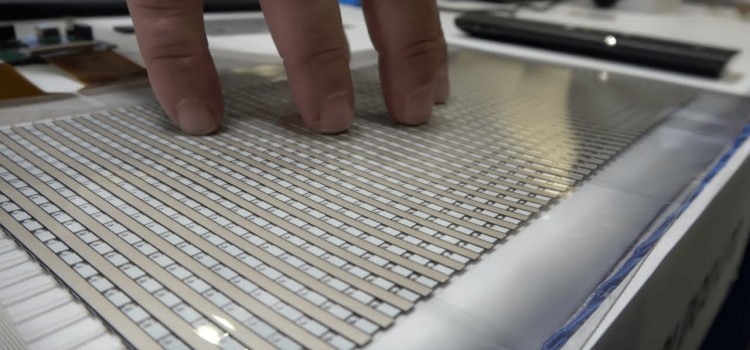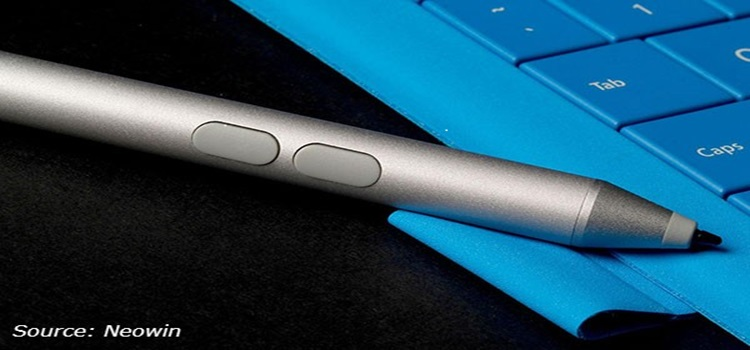
Radar Market by Type (Continuous Wave (CW) Radar, Pulse Radar, and Others), by Platform (Airborne, Ground-Based, Naval, and Space-Based), by Component (Transmitter, Receiver, Antenna, Waveguide, Duplexer, and Others), by Frequency Band (Single Band and Multiband), by Technology (Solid-state radar and Conventional radar), by Range (Short Range, Medium Range, and Long Range), by Application (Navigation, Weapon Guidance, Airspace Monitoring & Traffic Management, Remote Sensing, Ground Traffic Control, Space Navigation & Control, Meteorological, Airborne Mapping, and Others), and by End User (Automotive Industry, Aviation Industry, Shipping Industry, Military & Defense, and Others) - Global Opportunity Analysis and Industry Forecast 2024-2030
Market Definition
The global Radar Market size was valued at USD 34.28 billion in 2023 and is predicted to reach USD 63.3 billion by 2030 with a CAGR of 9.2% from 2024-2030. Radar stands for Radio Detection and Ranging, a technology that utilizes radio waves to determine the position or speed of an object. In a radar system, radio waves are emitted from a transmitter and then intercepted by objects along their path, causing them to reflect. These reflected radio waves are then received and amplified by a receiver located in the radar. The receiver converts the radio waves into a continuous electronic analog signal, which can be displayed on a screen.
Radar systems were developed exclusively for military purposes, primarily to detect and locate enemy ships and aircraft. However, continuous advancements in military radar technology have led to the creation of smaller, more sophisticated, and cost-effective radar systems. As a result, these radar systems have found various civilian applications, including weather forecasting, automotive assistance systems, and radar astronomy.
Market Dynamics and Trends
Increasing demand for radar technologies in automotive industry for advanced driver assistance systems (ADAS) in modern cars is driving the growth of radar market. Radar sensors are an integral part of autonomous vehicles and deployed for blind spot detection (BSD), lane change assistance (LCA), collision mitigation (CM), parking aid (PA), and rear cross traffic alert (RCTA) feature.
In November 2022, Infineon introduced a new CMOS transceiver Monolithic Microwave Integrated Circuit (MMIC), which aims to enhance the capabilities and performance of radar systems used in automotive applications. The new CMOS transceiver MMIC offers improved functionality, efficiency, and integration, enabling more precise and reliable radar sensing in vehicles.
Moreover, development of phased-array radar technology, which is capable of arbitrary scanning and provides high beam agility is increasing the adoption of radar by construction and power generation industry. Phased-array radars are used for nondestructive testing (NDT) for accurate mapping as the user can schedule the transmission and reception beams according to specific operational needs. This is expected to create ample opportunities for the radar market in the coming years.
However, strict government regulation regarding the trade of radar technologies as it is extensively used in military restraining the growth of the market. On the contrary, introduction of unmanned aerial vehicles fitted with lightweight radar is expected to create ample growth opportunities for the market in the coming years. These airborne radars can be used for intelligence gathering, surveillance and various airborne mapping.
Market Segmentations and Scope of the Study
The radar market report is segmented on the basis of type, platform, component, frequency band, technology, range, application, end user and geography. On the basis of type, the market is divided into continuous wave (CW) radar, pulse radar and others. The continuous wave (CW) the global market is further sub-segmented into modulated and unmodulated.
The pulse radar market is further sub-segmented into MTI (moving target indicator) radar and pulse doppler radar. On the basis of platform, the market is classified into airborne, ground-based, naval and space-based. On the basis of component, the market is categorized into transmitter, receiver, antenna, waveguide, duplexer and others. On the basis of frequency band, the market is divided into single band and multiband. The single band radar is further divided into radio waves and microwaves.
On the basis of technology, the market is classified into solid-state radar and conventional radar. On the basis of range, the market is categorized into short range, medium range and long range. On the basis of application, the market is classified into navigation, weapon guidance, airspace monitoring & traffic management, remote sensing, ground traffic control, space navigation & control, meteorological, airborne mapping and others. On the basis of end user, the market is categorized into automotive industry, aviation industry, shipping industry, military & defense and others. Geographic breakdown and analysis of each of the aforesaid segments includes regions comprising of North America, Europe, Asia-Pacific, and RoW.
Regional Analysis
North America holds the lion's share of radar market and is expected to continue its dominance during the forecast period. This is attributed to the factors such as high adoption of radar technology by military and defense sector and privatization of space exploration sector in the region. For instance, in June 2022, Space X launched SARah-1 radar earth observation satellite onboard SpaceX Falcon 9 rocket for Germany. SARah- 1 intends to deliver high-resolution imaging of the earth's surface for intelligence surveillance and reconnaissance purposes irrespective of weather and light conditions.
Also, presence of major market players such as Northrop Grumman Corporation, Lockheed Martin Corporation and The Raytheon Company further boosts the market growth in the region. For instance, in June 2022, Northrop Grumman Corporation delivered Scalable Agile Beam Radar (SABR) system called AN/APG-83 to U.S. Air Force to enhance capabilities of air national guard F-16 fleet of USA.
On the other hand, Europe is expected to show a steady rise in the radar market due to the high use of advance weather radars such as weather surveillance radar (WSR) and doppler weather radars (DMRL) in the region. These radar systems are used to locate precipitation, estimate rain, snow, hail or storm and analyze their potential to cause severe weather.
Also, increasing adoption of mobile command and control center (MC&CC) solutions by law-enforcement in the region is driving the radar market. MC&CC are range of unique vehicles equipped with radar systems that are used for law-and-order control, in emergency or disaster management situation and critical infrastructure protection. For instance, in December 2020, SAAB secured a contract to upgrade French Air and Space Force’s mobile command and control systems with Giraffe AMB medium-range 3D radar surveillance system.
Competitive Landscape
The radar industry comprises of various market players such Northrop Grumman Corporation, Lockheed Martin Corporation, Israel Aerospace Industries, BAE Systems plc, Saab AB, L3 Harris, The Raytheon Company, Leonardo S.p.A., Griffon Corporation and Rockwell Collins Inc. These market players are adopting several joint venture strategies and launching various products across various regions to maintain their dominance in the market.
For instance, in June 2023, Northrop Grumman announced that the company has upgraded the functionality of AN/TPS-80 Ground/Air Task-Oriented Radar (G/ATOR), which will extend the range and add advanced capabilities. Moreover, in November 2021, BAE System partnered with Cambridge Pixel (UK) to integrate their SPx radar processing and display software into BAE systems existing BAE Type-997 Artisan 3D air & surface surveillance radar. It will be fitted on Type-26 vessels of UK’s Royal Navy.
Key Benefits
-
The radar market report provides the quantitative analysis of the current market and estimations from 2023 to 2030. This analysis assists in identifying the prevailing market opportunities to capitalize on.
-
The study comprises of a detailed analysis of the radar market including the current and future trends for depicting the prevalent investment pockets in the market.
-
The information related to key drivers, restraints, and opportunities and their impact on the market is provided in the report.
-
The competitive analysis of the market players along with their market share in the global market is mentioned.
-
The SWOT analysis and Porter’s Five Forces model are elaborated in the study.
-
The value chain analysis in the market study provides a clear picture of the stakeholders’ roles.
Radar Market Key Segments
By Type
-
Continuous wave (CW) radar
-
Modulated
-
Unmodulated
-
-
Pulse Radar
-
MTI (Moving Target Indicator) Radar
-
Pulse Doppler Radar
-
-
Others
By Platform
-
Airborne
-
Ground-Based
-
Naval
-
Space-Based
By Component
-
Transmitter
-
Receiver
-
Antenna
-
Waveguide
-
Duplexer
-
Others
By Frequency Band
-
Single Band
-
Radio Waves
-
Microwave
-
-
Multiband
By Technology
-
Solid-state Radar
-
Conventional Radar
By Range
-
Short Range
-
Medium Range
-
Long Range
By Application
-
Navigation
-
Weapon Guidance
-
Airspace Monitoring & Traffic Management
-
Remote Sensing
-
Ground Traffic Control
-
Space Navigation & Control
-
Meteorological
-
Airborne Mapping
-
Others
By End User
-
Automotive Industry
-
Aviation Industry
-
Shipping Industry
-
Military & Defense
-
Others
By Region
-
North America
-
U.S
-
Canada
-
Mexico
-
-
Europe
-
UK
-
Germany
-
France
-
Italy
-
Spain
-
Denmark
-
Netherlands
-
Finland
-
Sweden
-
Norway
-
Russia
-
Rest of Europe
-
-
Asia-Pacific
-
China
-
Japan
-
India
-
South Korea
-
Australia
-
Indonesia
-
Singapore
-
Taiwan
-
Thailand
-
Rest of Asia-Pacific
-
-
RoW
-
Latin America
-
Middle East
-
Africa
-
KEY PLAYERS
-
Northrop Grumman Corporation
-
Lockheed Martin Corporation
-
Israel Aerospace Industries
-
BAE Systems plc
-
Saab AB
-
L3 Harris
-
The Raytheon Company
-
Leonardo S.p.A.
-
Griffon Corporation
-
Rockwell Collins Inc.




 Speak to Our Analyst
Speak to Our Analyst


































